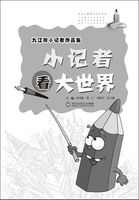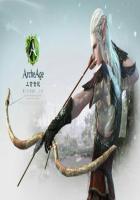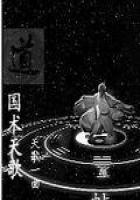I found the spirit for the war quite as hot at Boston now (in November) if not hotter than it was when I was there ten weeks earlier; and I found also, to my grief, that the feeling against England was as strong. I can easily understand how difficult it must have been, and still must be, to Englishmen at home to understand this, and see how it has come to pass. It has not arisen, as I think, from the old jealousy of England. It has not sprung from that source which for years has induced certain newspapers, especially the New York Herald, to vilify England. Ido not think that the men of New England have ever been, as regards this matter, in the same boat with the New York Herald. But when this war between the North and South first broke out, even before there was as yet a war, the Northern men had taught themselves to expect what they called British sympathy, meaning British encouragement. They regarded, and properly regarded, the action of the South as a rebellion, and said among themselves that so staid and conservative a nation as Great Britain would surely countenance them in quelling rebels. If not, should it come to pass that Great Britain should show no such countenance and sympathy for Northern law, if Great Britain did not respond to her friend as she was expected to respond, then it would appear that cotton was king, at least in British eyes. The war did come, and Great Britain regarded the two parties as belligerents, standing, as far as she was concerned, on equal grounds. This it was that first gave rise to that fretful anger against England which has gone so far toward ruining the Northern cause. We know how such passions are swelled by being ventilated, and how they are communicated from mind to mind till they become national. Politicians--American politicians I here mean--have their own future careers ever before their eyes, and are driven to make capital where they can. Hence it is that such men as Mr. Seward in the cabinet, and Mr. Everett out of it, can reconcile it to themselves to speak as they have done of England. It was but the other day that Mr. Everett spoke, in one of his orations, of the hope that still existed that the flag of the United States might still float over the whole continent of North America. What would he say of an English statesman who should speak of putting up the Union Jack on the State House in Boston? Such words tell for the moment on the hearers, and help to gain some slight popularity; but they tell for more than a moment on those who read them and remember them.
And then came the capture of Messrs. Slidell and Mason. I was at Boston when those men were taken out of the "Trent" by the "San Jacinto," and brought to Fort Warren in Boston Harbor. Captain Wilkes was the officer who had made the capture, and he immediately was recognized as a hero. He was invited to banquets and feted.
Speeches were made to him as speeches are commonly made to high officers who come home, after many perils, victorious from the wars. His health was drunk with great applause, and thanks were voted to him by one of the Houses of Congress. It was said that a sword was to be given to him, but I do not think that the gift was consummated. Should it not have been a policeman's truncheon? Had he at the best done any thing beyond a policeman's work? Of Captain Wilkes no one would complain for doing policeman's duty.
If his country were satisfied with the manner in which he did it, England, if she quarreled at all, would not quarrel with him. It may now and again become the duty of a brave officer to do work of so low a caliber. It is a pity that an ambitious sailor should find himself told off for so mean a task, but the world would know that it is not his fault. No one could blame Captain Wilkes for acting policeman on the seas. But who ever before heard of giving a man glory for achievements so little glorious? How Captain Wilkes must have blushed when those speeches were made to him, when that talk about the sword came up, when the thanks arrived to him from Congress! An officer receives his country's thanks when he has been in great peril, and has borne himself gallantly through his danger; when he has endured the brunt of war, and come through it with victory; when he has exposed himself on behalf of his country and singed his epaulets with an enemy's fire. Captain Wilkes tapped a merchantman on the shoulder in the high seas, and told him that his passengers were wanted. In doing this he showed no lack of spirit, for it might be his duty; but where was his spirit when he submitted to be thanked for such work?
And then there arose a clamor of justification among the lawyers;judges and ex-judges flew to Wheaton, Phillimore, and Lord Stowell.
Before twenty-four hours were over, every man and every woman in Boston were armed with precedents. Then there was the burning of the "Caroline." England had improperly burned the "Caroline" on Lake Erie, or rather in one of the American ports on Lake Erie, and had then begged pardon. If the States had been wrong, they would beg pardon; but whether wrong or right, they would not give up Slidell and Mason. But the lawyers soon waxed stronger. The men were manifestly ambassadors, and as such contraband of war. Wilkes was quite right, only he should have seized the vessel also. He was quite right, for though Slidell and Mason might not be ambassadors, they were undoubtedly carrying dispatches. In a few hours there began to be a doubt whether the men could be ambassadors, because if called ambassadors, then the power that sent the embassy must be presumed to be recognized. That Captain Wilkes had taken no dispatches, was true; but the captain suggested a way out of this difficulty by declaring that he had regarded the two men themselves as an incarnated embodiment of dispatches. At any rate, they were clearly contraband of war. They were going to do an injury to the North. It was pretty to hear the charming women of Boston, as they became learned in the law of nations:















